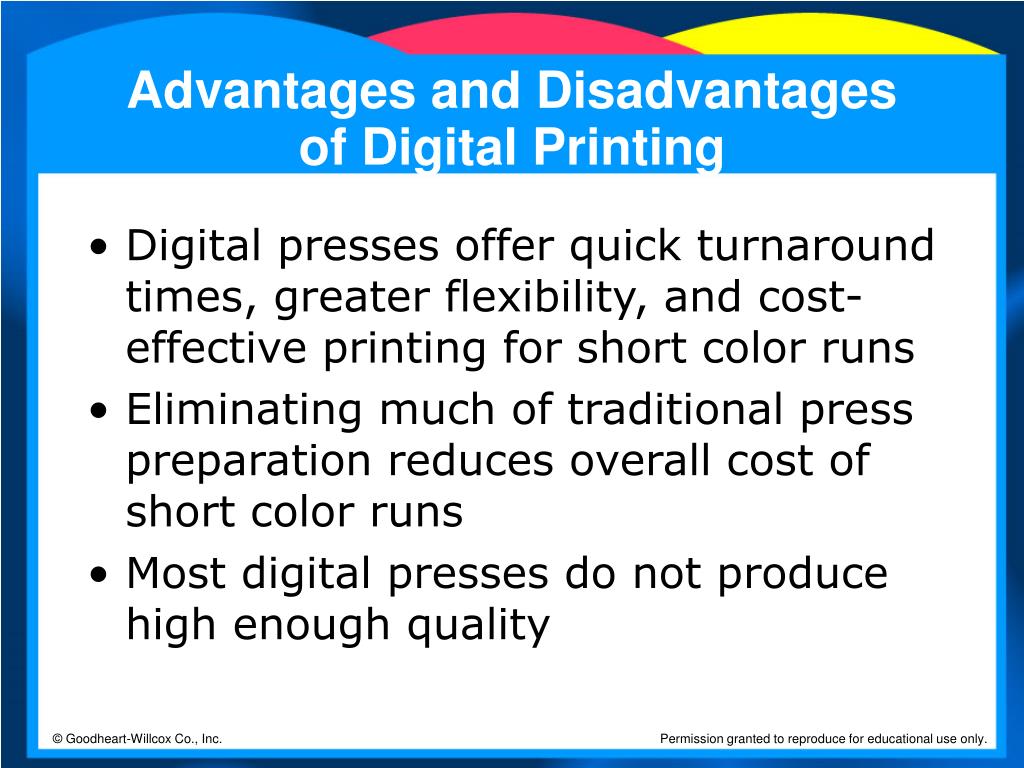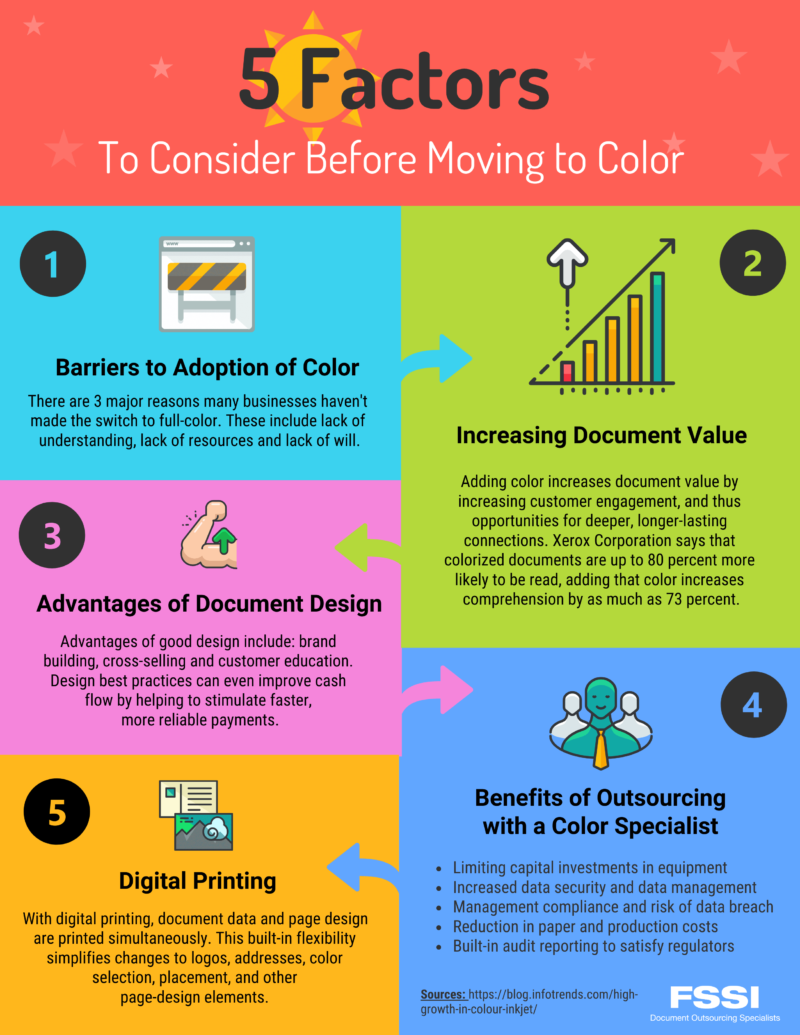10 Simple Techniques For Digital Printing
Table of ContentsTop Guidelines Of Digital PrintingThe 5-Second Trick For Digital Printing7 Easy Facts About Digital Printing DescribedDigital Printing for BeginnersThe Best Guide To Digital PrintingIndicators on Digital Printing You Should Know
Variable data printing, such as direct mail with customized codes and addresses, is preferably matched for digital printing. Digital fast printing only requires four actions of style, review, printing and binding to get every little thing done. Digital fast printing has an unmatched benefit: print on demand.According to PMMI, electronic printing enables brands and suppliers to respond promptly to customer demands while improving the supply chain, lowering warehousing price and waste, and enjoying faster time to market. That all audios great, however exactly how does this technology do all that? The significant differentiator of these innovations is that there are no set up costs and no plates with electronic printing.
Things about Digital Printing
According to Wikipedia, the best distinction between electronic printing and conventional methods such as lithography, flexography, gravure, or letterpress - Digital Printing is that there is no need to change printing plates in electronic printing, whereas in these analog printing methods home plates are repetitively replaced. This causes quicker turnaround time and reduces price when utilizing electronic printing.
Rapid production means obtaining your item to market much faster. It also suggests it's less complicated and faster to make adjustments in the future, when you change a dish, add a SKU, or create seasonal product packaging. Digital printing is highly versatile, so it's very easy to make changes to the bundle layout quickly. All of it goes back to home plates.
With standard printing techniques, short-run printing is simply not feasible. Due to the fact that a wonderful design can make or break your product, electronic printing consistently creates high-quality, clear and vibrant graphics each time.
Digital printing is the procedure of printing digital-based images straight onto a range of media substrates. There is no need for a printing plate, unlike with offset printing. Digital documents such as PDFs or desktop posting documents can be sent out straight to the electronic printing press to publish on paper, picture paper, canvas, material, synthetics, cardstock and other substrates.
Unknown Facts About Digital Printing
According to PMMI, digital printing permits brand names and makers to respond rapidly to customer needs while boosting the supply chain, lowering warehousing cost and waste, and taking pleasure in faster time to market. That all noises wonderful, however just how does this modern technology do all that? The major differentiator of these technologies is that there are no set-up charges and no plates with digital printing.
According to Wikipedia, the best distinction in between electronic printing and standard techniques such as lithography, flexography, gravure, or letterpress is that there is no requirement to change printing plates in electronic printing, whereas in these analog printing approaches home plates are repeatedly changed. This leads to quicker turnaround time and reduces expense when utilizing electronic printing.

The Only Guide for Digital Printing
Extra stock can mean even more waste later on. With conventional printing approaches, short-run printing is simply not possible. Due to the fact that an excellent style can make or damage your item, electronic printing constantly creates top notch, click for more info clear and vibrant graphics each time. Digital printing on versatile pouches includes the brilliant, vibrant, and precise graphics that virtually bid customers to reach out and touch them.

According to PMMI, digital printing allows brands and suppliers to react swiftly to customer needs while enhancing the supply chain, minimizing warehousing expense and waste, and delighting in faster time to market. That all sounds excellent, however just how does this modern technology do all that? The significant differentiator of these modern technologies is that there are no set up charges and no plates with digital printing.
What Does Digital Printing Mean?
According to Wikipedia, the best distinction between electronic printing and standard techniques such as lithography, flexography, gravure, or letterpress is that there is no requirement to change printing plates in electronic printing, whereas in these analog printing techniques home plates are repeatedly replaced. This leads to quicker turnaround time and decreases expense when utilizing electronic printing.
Quick production implies obtaining your item to market faster. It also suggests it's easier and faster to make adjustments later, when you change a recipe, include a SKU, or create seasonal packaging. Digital printing is extremely adaptable, so it's simple to make adjustments to the plan layout promptly. All of it returns to the plates.

Indicators on Digital Printing You Need To Know
Digital printing is the procedure of printing digital-based pictures straight onto a variety of media substrates. There is no demand for a printing plate, unlike with countered printing. Digital documents such as PDFs or desktop computer publishing files can be sent out straight to the digital printing machine to print on paper, picture paper, canvas, material, synthetics, cardstock and various other substrates.
Comments on “An Unbiased View of Digital Printing”